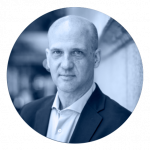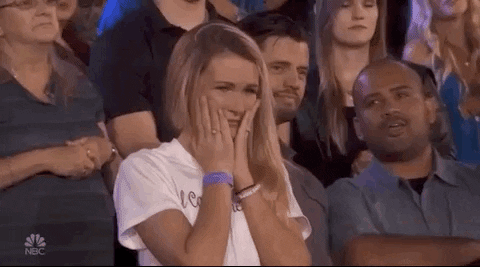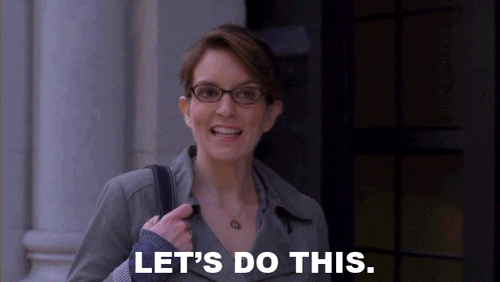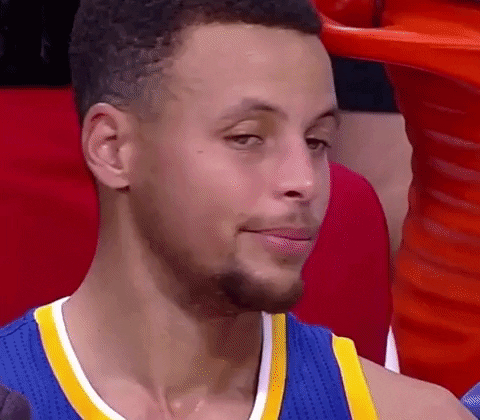Issue #146
Guten Morgen! The season of festivities remains upon us. After October’s Oktoberfest and Halloween, November kicks in with Thanksgiving, Christmas, and the New Year looming on the horizon. Before we get nostalgic and reminisce about what has been and what is still to come, let’s turn to this week’s Krautshell edition. While the German Chancellor Scholz, along with his Interior Minister Faeser and the Minister Presidents of Germany’s federal states came together for a showdown on migration in the Chancellery, Ursula von der Leyen traveled to Kyiv with good news on the country’s ambitions for EU membership. We also highlight the rise of the Bavarian regional party “Freie Wähler” (Free Voters) and explain why you might continue to hear about them as they eye an entry to Germany’s Bundestag in 2025. The UK experienced its fair share of royal drama this past week as our special insight from Atticus Partners reports. Moreover, Dr. Steven E. Sokol, President and CEO of the American Council on Germany, is featured in this week’s Guest House View with a view on Germany’s moral stress test. A lot to digest and a lot to go through so, without further ado, let’s dive straight in. Anna Szilvia PICK OF THE WEEK: Migration showdown at the Chancellery Following intense consultations at Germany’s Chancellery, the federal and state governments have agreed on a ground-breaking resolution on migration policy. The goal of this resolution is to achieve sustainable relief for local authorities while ensuring orderly migration. During a showdown at the Chancellery, Federal Chancellor Scholz, Federal Minister of the Interior Faeser, and the Minister Presidents of Germany’s federal states developed concrete measures to meet the current challenges in migration policy. The decision includes solidarity-based cost sharing between the federal, state, and local authorities, intensifying the protection of Europe’s external borders, speeding up asylum procedures, introducing a nationwide payment card, and creating a future entitlement to a citizen’s allowance. Financial support for the federal states for the accommodation and care of refugees plays a decisive role against the backdrop of rising immigration figures, the Russian war of aggression against Ukraine, and the resulting burden on municipalities. Federal Minister of the Interior Faeser emphasizes: “With the package of measures that has now been adopted, we are continuing on the right course to better manage and organize migration. We are ensuring that we can fulfill our humanitarian responsibility without losing sight of the realities. People without the right to stay should be able to leave our country more quickly, and we are implementing concrete measures to achieve this.” Parallel to the resolutions on migration policy, a comprehensive package for more speed, prosperity, and stability in Germany has been put together: the pact to speed up planning, authorization, and implementation processes. INSIGHTS FROM PARLIAMENT: Germany’s Free Voters on 2024 EU election springboard to the Bundestag in 2025 The Free Voters, traditionally a regional party in Bavaria, are eyeing the 2024 European Parliament elections as a springboard for their upcoming national campaign. Recent successes, such as obtaining seats in regional parliaments and securing a historic 16% vote share in Bavaria’s latest election, have bolstered their ambitions to enter the Bundestag in 2025. It is evident that the Free Voters are expanding beyond their regional status, with a surge in membership and increased regional representation. The party’s ambition is the establishment of a nationwide presence, being represented in three state parliaments as well as the European Parliament. Ulrike Müller, the Free Voters’ first MEP, believes this strategy will help them overcome the 5% threshold required to enter the Bundestag in 2025, expecting their EU election campaign to raise the party’s profile. Germany’s liberal FDP, a struggling member of Chancellor Scholz’ governing coalition and party of Finance Minister Lindner, increasingly finds itself competing for votes with Freie Wähler – and losing. Freie Wähler’s recent victory in Bavaria saw the FDP ousted from state parliament. Despite their competition for votes at Germany’s federal and state level, the two parties cooperate closely in the European Parliament’s Renew parliamentary group. Keep an eye on the Free Voters during upcoming elections for tell signs on Germany’s 2025 elections. THE BIG PICTURE: EU Enlargement and focus on Ukraine With the global spotlight on the Israel-Hamas war, the EU won’t lose focus of Ukraine’s fight against the Russian invasion. That was the message that EU Commission President Ursula von der Leyen relayed during her recent surprise visit to Kyiv. Her presence had a dual purpose: On the one hand, it demonstrated her support for the country’s integration into Western structures, including the European Union, ahead of the Commission’s progress report on enlargement, which was published on Wednesday. On the other, it gave visibility to the Commissions efforts to prevent Ukraine’s fight against Russia from taking a backseat while another crisis demands attention. Addressing Ukraine’s parliament, von der Leyen emphasized the “excellent progress” that Ukraine has made in fulfilling the reform conditions for future EU accession. In the same spirit, the Commission’s enlargement package, which was adopted on Wednesday, included Ukraine (as well as Moldova and Georgia) for the first time. The report focuses on the progress in the implementation of fundamental reforms, as well as on providing clear guidance on the reform priorities ahead. In light of the progress that Von der Leyen commended in Kyiv, the Commission’s report recommends that the Council opens accession negotiations with Ukraine and Moldova. The road to EU membership will surely be long and winding but the opening of accession negotiations would cement Ukraine’s status as a long-term strategic partner, if not member, of the European Union. An MP has been taken hostage in the Monarch’s metropolitan palace. A gilded coach drawn by six white horses glides down Whitehall flanked by armed guards. The King steps forth crumpled under a heavy crown encrusted with over 2800 diamonds. He lays out the wishes of his administration before Parliament. The nation holds its breath. Or so those who invented this flamboyant tradition foresaw the King’s Speech unfolding. Whilst much of the airport bookshop royal drama style prose described above did take place, Tuesday’s proceedings were more pomp than substance. The nation certainly remained unstirred, with little cut through to the public. King Charles III ‘opened’ Parliament with his reading of the King’s Speech which despite its title is neither written by, nor for, the King. The Government of the day writes the Speech in which they detail the legislation they wish to bring before Parliament in a constitutional arrangement that turns the King into little more than a bejewelled press officer. Aside from the surrounding politicking, this event serves as an irregular reminder of the diminished status of the Monarch in the UK’s odd constitutional arrangement. Rishi Sunak’s Government announced Bills including the go-ahead for fossil fuel production in the North Sea, the banning of cigarettes for those born after 2009 (which has gained support across both sides of the aisle) and the halting of ‘no-fault’ evictions. Some have argued that this King’s Speech was lighter than previous, with the Opposition pointing out the lack of mention of the NHS and the economy, two of the biggest issues here in the UK. Much of this would leave a cynic to argue that these Bills were never announced to show legislative ambition, but instead intended for use as wedge issues in the next election, due to happen in 2024. Source: bagw.de by Dr. Steven E. Sokol, President and CEO of the American Council on Germany “Germany’s Moral Stress Test” I was a Zeitzeuge in Berlin when the Wall came down on November 9, 1989. I had a front-row seat to history – and saw the joy and euphoria of the events that ultimately led to German unification on October 3, 1990. But, there is another, darker association with this date. This year November 9th marks the 85th anniversary of Kristallnacht – otherwise known as the “night of broken glass” – when 30,000 Jews were arrested and deported to concentration camps, more than 90 were killed, and hundreds were injured. Some 1,400 synagogues were destroyed – and many of them were never rebuilt. These actions on November 9, 1938, were a harbinger of the terror and destruction of the Holocaust. Solemn commemorations of the state-sponsored terror by the Nazis which were held this year were set against the backdrop of rising support for the right-wing populist Alternative for Germany (AfD), the October 7 terror attack by Hamas and open hostilities for more than a month, and a spike in anti-Semitic attacks. Germany is experiencing a monumental stress-test – and it is playing out in political circles and on the streets. Dark Memories of Dark Times World leaders have drawn parallels between the assault by Hamas and the Holocaust. President Joe Biden even described it as “the deadliest day for Jews since the Holocaust.” Since the attacks on October 7, Jews in Germany have faced violence and authorities say anti-Semitic crimes have increased. Firebombs have been thrown at synagogues, and homes and businesses have been marked with the Star of David. These are dark reminders of the 1930s. Although the scale of these incidents is nothing compared with what happened 85 years ago, they were unimaginable in today’s Germany and have brought up feelings and emotions that have not been felt in decades. Since the end of World War II, one mantra in Germany has been the term “Nie wieder” or “Never again.” Yet, once again Jews fear for their lives. Being Put to the Test On a visit to Israel ten days after the Hamas attacks, Chancellor Olaf Scholz said that Germany’s “history and our responsibility arising from the Holocaust make it our duty to stand up for the existence and security of the State of Israel.” But not everyone sees it that way. The conflict in Gaza has polarized communities, and one has seen this in local communities. There have been pro-Israeli and pro-Palestinian demonstrations and some of them have become violent. One journalist even wrote that it is as if “one front in the Israel-Hamas war is playing out on the streets of Berlin.” German authorities have banned many pro-Palestinian demonstrations, saying that there is a high risk of “incitement to hatred” and a threat to public safety. Some – particularly on the political left – have questioned whether these bans are legitimate. They have argued that they suppress freedom of speech and concerns about Israel’s counterattacks which have led to civilian casualties in Gaza. Despite the bans, demonstrators have gathered, and this has often led to violent clashes with police. Germans are having to balance freedom of speech on the one hand with constraining hate speech on the other. Following an increase in incidents and demonstrations questioning Israel’s right to exist, Vice Chancellor Robert Habeck released a powerful video – with English, Hebrew and Arabic subtitles – underscoring Germany’s support for Israel and even said “Israel’s security is our obligation.” His message was one of moral clarity at a time when fundamental elements of Germany’s post-war history are being put to the test. Rethinking Migration Policy Showing steadfast support for Israel and promoting the renewal of Jewish life in Germany have been central to the country’s collective atonement for the Holocaust. It was largely this sense of responsibility that has driven Germany to welcome millions of refugees from the Middle East and other Muslim-majority regions since 2015 – when then-Chancellor Angela Merkel said “Wir schaffen das!” (“We will manage this!”) In his video message, Vice Chancellor Habeck acknowledged that there is anti-Semitism on the right, but he was also critical of the political left and Muslim communities in Germany – which have found common ground in their criticism of Israel. He suggested that part of the problem is the presence of Islamists in Germany’s large Muslim community. He said that the “scale of Islamist demonstrations in Berlin and other cities in Germany is unacceptable and needs a tough political response” and even suggested deporting immigrant protesters who violate German norms against anti-Semitism – which is quite surprising for a politician on the left. Earlier this week, the Minister Presidents of all 16 Bundesländer met and then there was a meeting between the states and the federal government. At the top of the agenda was migration policy. Some have said that Germany has allowed too many migrants and refugees into the country since 2015 – and believe it is now paying the price. Navigating Germany’s Values Today It will always be hard for Germany to celebrate November 9, 1989, because of haunting shadows of the same date in 1938. This year it is more difficult than usual. Germany has a historical commitment to Israel and the Jews, and the German government has strongly demonstrated that support since October 7th. It also has a commitment to human rights as demonstrated by its acceptance of millions of immigrants and refugees from the Middle East and its humanitarian aid to Gaza. And Germany is committed to the democratic value of free speech. All of these commitments are strained at the moment. As the country navigates the road ahead it will need moral clarity, strong leadership communicating those commitments, and continued efforts to combat both anti-Semitism and Islamophobia. Here are three appointments for next week that you should have on your radar: JUST A MATTER OF TIME Two weeks ago, we happily reported here on the results of the Polish elections. Admittedly, the Krautshell team could have been a bit more optimistic. Being a Polish native, I was. While right-wing and populist parties are on the rise in many (not just EU) countries, it was moving to see that the Polish people, after already having ventured the populist path years before many other countries, at the election booths decided to vote pro-European, liberal, and democratic. The governing PiS (United Right) lost its majority, and since there is no one really for them to build a coalition, it seemed like a clear path that the former opposition would form a three-party coalition under the leadership of the PO (Civic Coalition) to resume reigns in Poland. And they did – just yesterday, they (as in Civic Coalition, Third Way, and The Left) declared the coalition negotiations successfully completed and their readiness to start governing. So, there is just one little hurdle for now: In Poland, the President, after elections, needs to assign someone to put together and lead a government. And he did; it just wasn’t the PO-Leader Donald Tusk, but the PiS Leader Mateusz Morawiecki. Now, some might, as he did, claim that the PiS was still the biggest party and thus the winner of the elections. Most people, though, see the move as what it is: A desperate attempt to cling to power and, just speculating here, maybe winning some time to clean up whatever is not wished to be found. And yes, you guessed correctly: President Duda himself is a member of the PiS… However, there is no way around it: Morawiecki will fail to put together a government, and then, at the latest, the waiting-in-the-wings coalition will take over. Until then, I hope people will see this unnecessary delay as a further indication of having made the right choice in the elections two weeks ago. Issue #146


FIRST, AN OUTLOOK FROM SZILVIA:
NOW, SOME SOLID INTEL:
AND WHAT’S UP IN GREAT BRITAIN?
TAKE A BREAK, GIVE YOUR EYES A REST:

THE (GUEST) HOUSE’S VIEW:

LONG STORY SHORT:
OUTLOOK:
When?
What?
November 13th & 14th, 2023
Council of the EU: Foreign Affairs Council
November 15th, 2023
President Joe Biden and Chinese leader Xi Jinping meet at APEC
November 16th, 2023
President Ursula von der Leyen attends the congress “Strategic partnerships in the Indo-Pacific: reducing dependencies, expanding trade, implementing China strategy” by the CDU/CSU Bundestag faction
WHAT’S ON OUR MINDS:




